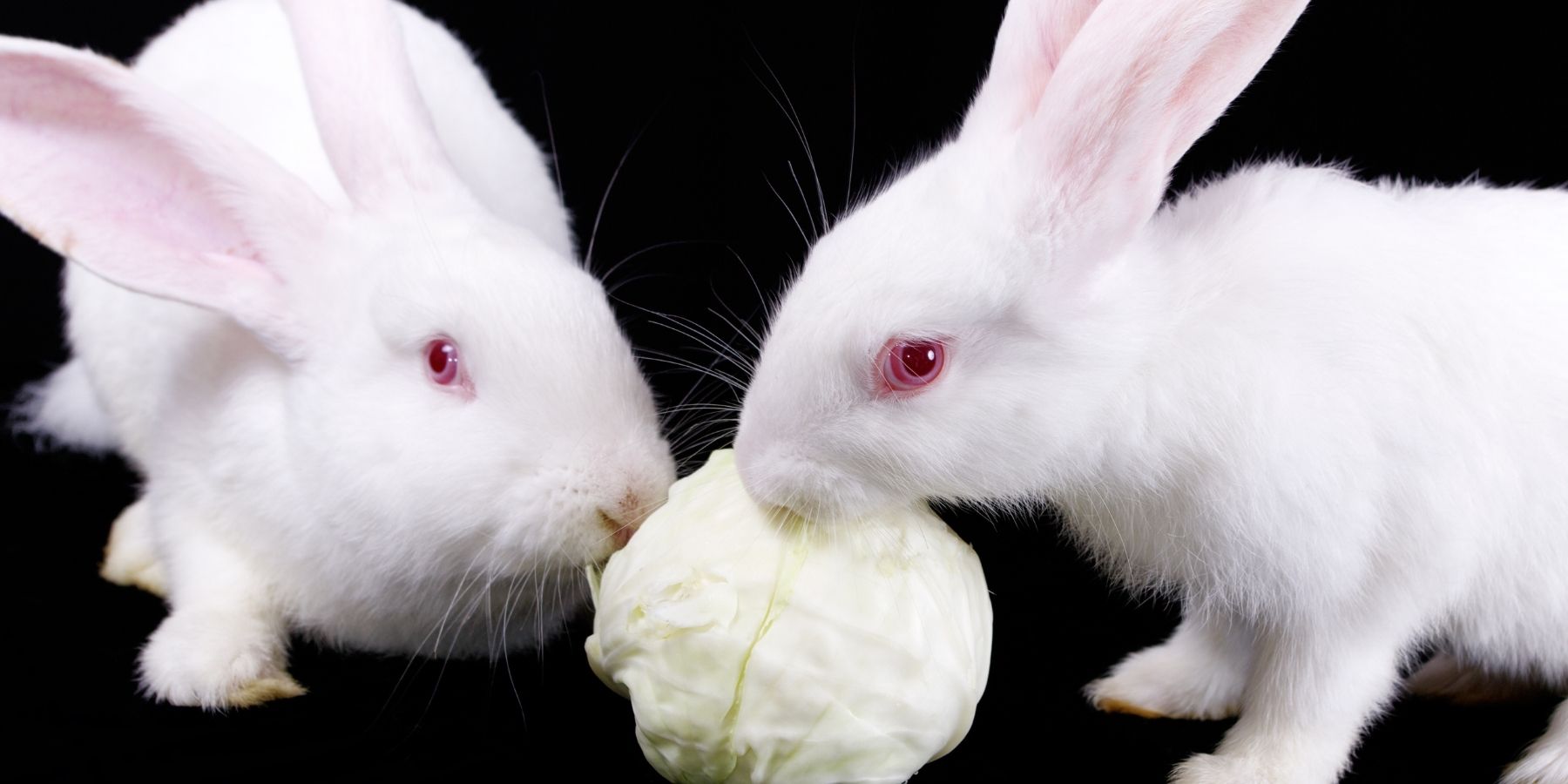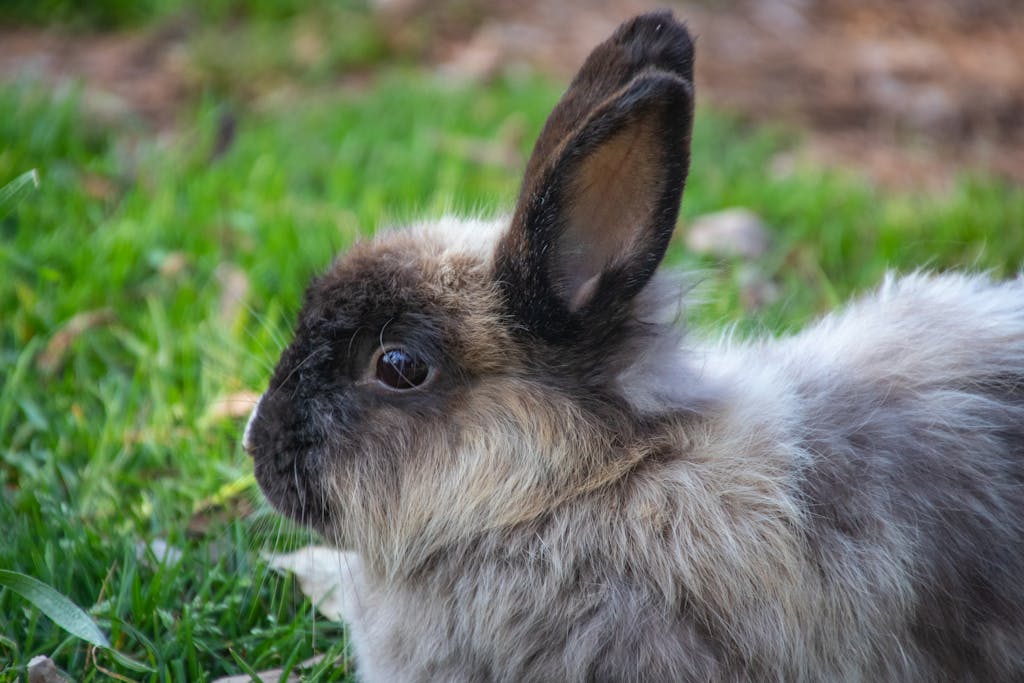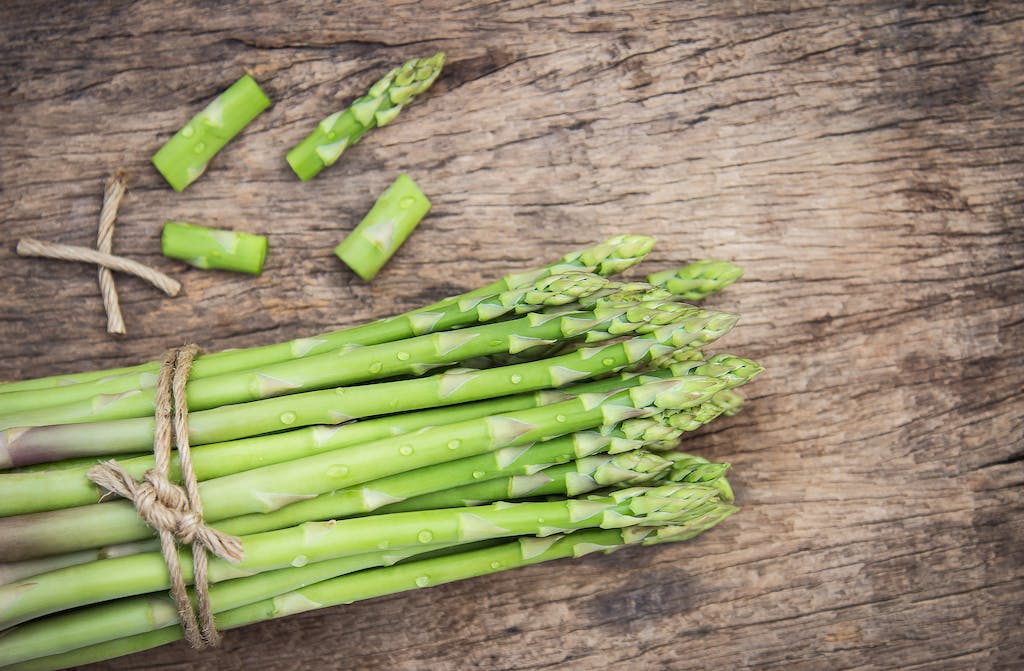Can Rabbits Have Cabbage? A Guide to Feeding Your Bunny
There are some affiliate links below, but they are all products I highly recommend. For more info, view my disclosure here.
Can rabbits have cabbage? This is a common question among rabbit owners, and for good reason. While cabbage is a nutritious vegetable for humans, it’s important to know whether or not it’s safe for rabbits to eat. In this article, we’ll explore the topic of rabbits and cabbage, providing you with the information you need to make an informed decision about feeding this vegetable to your furry friend.
Rabbits are herbivores, and their diet should consist primarily of hay, fresh vegetables, and a small amount of fruit. While cabbage is a vegetable that is safe for rabbits to eat, it should be given in moderation. Too much cabbage can cause digestive issues, including gas and bloating. Additionally, cabbage contains a high amount of vitamin K, which can interfere with blood clotting if given in excessive amounts. As with any new food, it’s important to introduce cabbage slowly and in small quantities to avoid any potential health issues.
In the following sections, we’ll take a closer look at the nutritional benefits of cabbage for rabbits, potential health risks, and how much cabbage is safe to feed your furry friend. Whether you’re a new rabbit owner or simply looking to expand your knowledge, this article will provide you with the information you need to make the best decisions for your pet’s health and well-being.
Nutritional Profile of Cabbage
Cabbage is a leafy green vegetable that is part of the Brassica family. It is a great source of vitamins and minerals, making it a healthy addition to your diet. In this section, we will take a closer look at the nutritional profile of cabbage.
Vitamins and Minerals in Cabbage
Cabbage is rich in several vitamins and minerals, including vitamin K, vitamin C, and folate. Vitamin K is essential for blood clotting and bone health, while vitamin C is important for immune function and skin health. Folate is important for cell growth and development.
In addition to these vitamins, cabbage also contains minerals such as calcium, potassium, and magnesium. Calcium is important for bone health, while potassium and magnesium are important for heart health.
Differences in Cabbage Varieties
There are several different varieties of cabbage, each with its own unique nutritional profile. Green cabbage is the most common variety and is rich in vitamin C and fiber. Red cabbage is similar in nutritional value to green cabbage but contains more anthocyanins, which are antioxidants that give it its red color.
Savoy cabbage has a more delicate texture and is rich in vitamin C and folate. Napa cabbage, also known as Chinese cabbage, is low in calories and high in vitamin C and potassium. Bok choy is a type of Chinese cabbage that is rich in vitamin A and calcium.
Purple cabbage, also known as red cabbage, is high in antioxidants and has a slightly sweeter flavor than green cabbage. White cabbage is similar in nutritional value to green cabbage but has a milder flavor.
Cabbage is a nutrient-dense vegetable that is an excellent source of vitamins and minerals. With its many varieties, there is a cabbage to suit every taste and nutritional need.
Rabbit Dietary Needs
As a rabbit owner, it is important to understand the dietary needs of your furry friend. A balanced diet is essential to keep your rabbit healthy and happy. In this section, we will discuss the importance of hay and fresh foods in a rabbit’s diet.
Importance of Hay
Hay is an essential component of a rabbit’s diet. It provides the necessary fiber that helps keep their digestive system healthy. There are three main types of hay that are suitable for rabbits: alfalfa hays, grass hays, and timothy hay.
Alfalfa hay is high in protein and calcium, which makes it ideal for young rabbits, pregnant or nursing does, and rabbits that need to gain weight. Grass hay, such as orchard grass and meadow hay, is lower in protein and calcium, making it suitable for adult rabbits. Timothy hay is the most popular hay for rabbits, as it is low in calories and high in fiber.
Make sure to provide your rabbit with a constant supply of hay. They should have access to hay at all times, as it helps keep their digestive system moving and their teeth healthy.
Fresh Foods in a Rabbit’s Diet
Fresh vegetables and fruits are a great addition to a rabbit’s diet. They provide essential vitamins and minerals that are not found in hay. However, it is important to introduce fresh foods slowly, as rabbits have a sensitive digestive system.
Some good options for fresh vegetables include leafy greens such as kale, spinach, and parsley, as well as carrots, bell peppers, and broccoli. Fruits should be given in moderation, as they are high in sugar. Good options include apples, bananas, and berries.
When introducing new foods to your rabbit’s diet, make sure to do so gradually. Start with small amounts and monitor your rabbit’s digestion. If you notice any changes in their stool or behavior, stop feeding the new food and consult with your veterinarian.
A balanced diet is essential for a rabbit’s health and well-being. Make sure to provide your rabbit with a constant supply of hay and introduce fresh foods slowly and in moderation. By following these guidelines, you can ensure that your rabbit is getting the necessary nutrients to thrive.
Health Benefits and Risks of Cabbage for Rabbits
Cabbage is a nutritious vegetable that can offer several health benefits to your rabbit. However, it also has some risks that you should be aware of before feeding it to your furry friend.
Safe Consumption of Cabbage
Rabbits can safely consume cabbage as an occasional treat, but only in small amounts. Cabbage contains high levels of calcium, which can cause digestive issues if fed in large quantities. Therefore, it is important to limit your rabbit’s cabbage intake to prevent excessive gas and loose stools.
Potential Dangers of Cabbage
While cabbage can be a healthy addition to your rabbit’s diet, it can also pose some risks. Excessive gas is one of the most common issues that can arise from feeding cabbage to rabbits. This can cause discomfort and bloating, which can lead to other health problems.
Moreover, cabbage has a high calcium content, which can contribute to the formation of bladder stones in rabbits. Therefore, it is important to monitor your rabbit’s calcium intake and limit their consumption of high-calcium foods like cabbage.
In conclusion, cabbage can offer some health benefits to your rabbit but should only be fed in small amounts as an occasional treat. Make sure to monitor your rabbit’s digestive health and calcium intake to prevent any potential health issues.
Introducing Cabbage to Your Rabbit
If you’re considering introducing cabbage to your rabbit’s diet, it’s important to do so gradually and monitor your rabbit’s health closely. Cabbage is a nutritious vegetable that can provide your rabbit with essential vitamins and minerals, but it can also cause digestive problems if introduced too quickly or in large quantities.
Starting with Small Portions
When introducing cabbage to your rabbit’s diet for the first time, it’s best to start with small portions. Begin by offering your rabbit a small piece of cabbage and observe how they react to it. If your rabbit shows no adverse reactions, you can gradually increase the amount of cabbage you offer them.
It’s important to note that not all rabbits will enjoy the taste of cabbage, so don’t be discouraged if your rabbit doesn’t take to it right away. You can try offering different varieties of cabbage, such as red or savoy cabbage, to see if your rabbit prefers a different flavor.
Monitoring Your Rabbit’s Health
As with any new food, it’s important to monitor your rabbit’s health closely after introducing cabbage to their diet. Keep an eye out for any adverse reactions, such as diarrhea or bloating, which can indicate digestive problems.
If your rabbit experiences any digestive problems after eating cabbage, it’s best to stop feeding it to them and consult with your veterinarian. They may recommend adjusting your rabbit’s diet or providing them with medication to alleviate any discomfort.
In summary, introducing cabbage to your rabbit’s diet can be a nutritious addition, but it’s important to do so gradually and monitor your rabbit’s health closely. By starting with small portions and observing your rabbit’s reaction, you can ensure that cabbage is a safe and enjoyable addition to their diet.
Best Practices for Feeding Cabbage to Rabbits
Cabbage is a nutritious vegetable that can be included in your pet rabbit’s diet, but it should be given in moderation. Here are some best practices for feeding cabbage to your pet rabbit.
Selecting and Preparing Cabbage
When selecting cabbage for your rabbit, choose fresh cabbage that is free of any signs of decay or mold. Rinse the cabbage leaves thoroughly under running water to remove any dirt or debris. Remove the outer leaves and cut the cabbage into small pieces.
Frequency and Amount of Cabbage
Cabbage should be given to your rabbit in moderation, as too much can cause digestive issues. It is recommended that cabbage be given to your rabbit no more than once or twice a week, and in small amounts. A good rule of thumb is to give your rabbit a piece of cabbage that is about the size of their head.
Incorporating Cabbage into Your Bunny’s Diet
Cabbage can be a great addition to your rabbit’s diet, but it should not be the main source of their nutrition. Make sure your rabbit has access to clean water and a balanced diet that includes hay, fresh vegetables, and a small amount of pellets.
Cabbage can be a healthy addition to your rabbit’s diet when given in the right amount and frequency. By following these best practices, you can ensure that your pet rabbit is getting the nutrients they need to stay happy and healthy.
Check out our article about the best rabbit food and, if you haven’t yet, read our article, Can Rabbits Eat Carrots? Fun fact, they can, but it’s not the best choice for their well-being.







